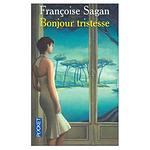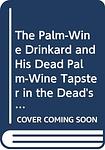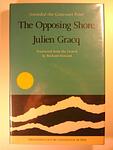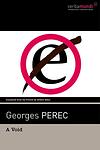The Greatest Nigerian, French "Fiction" Books Since 1950
Click to learn how this list is calculated.
This list represents a comprehensive and trusted collection of the greatest books. Developed through a specialized algorithm, it brings together 286 'best of' book lists to form a definitive guide to the world's most acclaimed books. For those interested in how these books are chosen, additional details can be found on the rankings page.
Genres
Countries
Date Range
Reading Statistics
Click the button below to see how many of these books you've read!
Download
If you're interested in downloading this list as a CSV file for use in a spreadsheet application, you can easily do so by clicking the button below. Please note that to ensure a manageable file size and faster download, the CSV will include details for only the first 500 books.
Download-
1. Things Fall Apart by Chinua Achebe
This novel explores the life of Okonkwo, a respected warrior in the Umuofia clan of the Igbo tribe in Nigeria during the late 1800s. Okonkwo's world is disrupted by the arrival of European missionaries and the subsequent clash of cultures. The story examines the effects of colonialism on African societies, the clash between tradition and change, and the struggle between individual and society. Despite his efforts to resist the changes, Okonkwo's life, like his society, falls apart.
-
2. Memoirs of Hadrian by Marguerite Yourcenar
"Memoirs of Hadrian" is a historical novel that presents a fictional autobiography of the Roman Emperor Hadrian, who reigned from 117 to 138 AD. Narrated in the first person, the novel explores Hadrian's ascension to the throne, his administration, his love for the young Antinous, and his philosophical reflections on life and death. The narrative is framed as a letter to his successor, Marcus Aurelius, offering insights into the complexities of power, the nature of leadership, and the human condition.
-
3. The Lover by Marguerite Duras
"The Lover" is a poignant exploration of forbidden love, power dynamics, and colonialism. Set in 1930s French Indochina, it tells the story of a tumultuous and passionate affair between a 15-year-old French girl and her wealthy, older Chinese lover. The narrative delves into the complexities of their relationship, the societal norms they defy, and the inevitable heartbreak that follows. The protagonist's struggle with her family's poverty and her mother's mental instability further complicates the story, making it a compelling exploration of love, desire, and societal constraints.
-
4. Bonjour Tristesse by Francoise Sagan
This novel centers around a 17-year-old girl living with her playboy father in the French Riviera. The pair lead a carefree, hedonistic lifestyle until the father decides to remarry, causing the protagonist to hatch a plan to prevent the marriage and return to their old way of life. The story explores themes of youth, love, and the struggle between desire and morality.
-
5. Life, a User's Manual by Georges Perec
The novel explores the lives of the inhabitants of a Parisian apartment block through a complex, multi-layered narrative. It delves into the interconnected stories of the building's residents, revealing their secrets, desires, and disappointments. The narrative is structured like a puzzle, with the author employing a variety of literary styles and devices, making it a complex and intriguing exploration of human life.
-
6. The Mandarins by Simone de Beauvoir
"The Mandarins" is a novel that explores the personal and political lives of a group of intellectuals in post-World War II France. The narrative delves into their struggles with ethical dilemmas, political ideologies, and personal relationships in a rapidly changing world. The book is known for its exploration of existentialism and feminism, providing a vivid portrayal of the human condition and the complexities of freedom.
-
7. Half of a Yellow Sun by Chimamanda Ngozi Adichie
The novel is set in Nigeria during the Biafran War, exploring the impact of the conflict on the lives of its characters. The story is told from the perspective of three characters: a young houseboy, a radical university professor, and the professor's wealthy lover. The narrative delves into themes of love, race, and war, offering a vivid depiction of the horrors of conflict and the resilience of the human spirit.
-
8. The Fall by Albert Camus
The novel is narrated by a successful Parisian lawyer who has moved to Amsterdam after a crisis of conscience. He confesses his past misdeeds and moral failings to a stranger in a bar, revealing his growing self-loathing and disillusionment with the hypocrisy and shallowness of his former life. His confessions are a reflection on guilt, innocence, and the nature of human existence. The protagonist's fall from grace serves as a critique of modern society's moral failings and the individual's struggle with guilt and redemption.
-
9. Zazie in the Metro by Raymond Queneau
A young, precocious girl named Zazie comes to Paris to stay with her flamboyant uncle, a professional female impersonator. She is obsessed with riding the Metro, but a strike thwarts her plans. As she explores the city on her own, she encounters a variety of eccentric characters, gets into mischief, and ultimately causes chaos in the city. The novel is a humorous and satirical look at Parisian life, filled with word play and surreal elements.
-
10. Arrow of God by Chinua Achebe
Set in Nigeria during the early 20th century, the story follows Ezeulu, the chief priest of the god Ulu, as he struggles to maintain his position of power in his village and with his own family. As the British colonial government seeks to exert control, Ezeulu finds himself caught between the traditional religious practices of his people and the new political realities. The narrative explores themes of power, tradition, change, and the clash of cultures.
-
11. The Famished Road by Ben Okri
The novel centers around the life of an abiku, a spirit child, who resides in the bustling city of Lagos. Despite numerous attempts to return to the spiritual world, the boy is tethered to the physical realm through the love of his mother. As he navigates through the political unrest and poverty of post-colonial Nigeria, he experiences a series of surreal and mystical encounters, all while wrestling with the pull of the spirit world. The narrative is a blend of reality and the supernatural, providing a unique perspective on the struggles and complexities of human life.
-
12. Americanah by Chimamanda Ngozi Adichie
The novel follows a young Nigerian woman who emigrates to the United States for a university education. While there, she experiences racism and begins blogging about her experiences as an African woman in America. Meanwhile, her high school sweetheart faces his own struggles in England and Nigeria. The story is a powerful exploration of race, immigration, and the complex nature of identity, love, and belonging.
-
13. The Elementary Particles by Michel Houellebecq
"The Elementary Particles" is a provocative novel that explores the lives of two half-brothers, one a molecular biologist and the other a disenchanted teacher, against the backdrop of late 20th-century France. The narrative delves into their personal struggles and emotional turmoil, resulting from their dysfunctional upbringing by a self-absorbed, hedonistic mother. Throughout the novel, the author uses their stories to critique contemporary society, touching on themes such as sexual liberation, consumerism, and the decline of traditional values. The book also delves into the implications of scientific advancements, particularly in the field of molecular biology.
-
14. Jealousy: A Novel by Alain Robbe-Grillet
This novel is an avant-garde narrative that explores the concept of jealousy through a highly detailed and descriptive narrative. The story unfolds in a tropical banana plantation and is told from the perspective of an unnamed narrator who may or may not be present in the scenes described. The narrative is characterized by repetition and minute observation of details, creating a sense of obsessive jealousy. The story is ambiguous and leaves the reader questioning the reality of the events and the existence of the narrator.
-
15. The Palm Wine Drinkard And His Dead Palm Wine Tapster In The Dead's Town by Amos Tutuola
This novel follows the surreal and fantastical journey of an African man with an insatiable thirst for palm wine, who, after the death of his skilled tapster, embarks on a quest to the land of the dead in hopes of bringing him back to the world of the living. Along the way, he encounters a myriad of bizarre and supernatural obstacles, including ghosts, witches, and other mythical creatures, each presenting their own challenges and moral lessons. The narrative, rich with the oral tradition of Nigerian folklore and written in a distinctive pidgin English, weaves a tale that explores themes of desire, loss, and the intersection of the living and the spiritual realms.
-
16. Second-class Citizen by Buchi Emecheta
"Second-Class Citizen" is a poignant narrative about a young Nigerian woman, Adah, who dreams of getting an education and moving to the United Kingdom. Despite cultural and societal obstacles, Adah manages to achieve her dream but is met with more hardship as she faces racial discrimination, an abusive marriage, and the struggle of raising five children in a foreign land. Through her resilience, she continues to strive for a better life, depicting the struggles of immigrants and the strength of women.
-
17. Delta of Venus by Anaïs Nin
"Delta of Venus" is a collection of fifteen short stories that explore the nature of human sexuality and eroticism. Set in various locations around the world, the book delves into a wide range of sexual experiences and desires, from the conventional to the taboo. The stories are as much about the psychology of desire and the power dynamics inherent in sexual relationships as they are about the act itself, and they are written in a lush, poetic style that is both explicit and deeply introspective.
-
18. Story of O by Pauline Reage
"Story of O" is a tale of female submission involving a beautiful Parisian fashion photographer named O, who is taught to be constantly available for any form of sexual conduct, to ensure her lover's satisfaction. As part of her training, she agrees to be regularly stripped, bound, whipped, and shared among several men. The story explores the themes of love, freedom, and the paradox of control and power in sexual relationships.
-
19. The Flanders Road by Claude Simon
The novel delves into the complexities of memory and the chaos of war, weaving together the narratives of several characters whose lives are entangled by the events of World War II. Set against the backdrop of the German invasion of France, the story unfolds through a series of flashbacks and stream-of-consciousness reflections, primarily focusing on a French cavalry officer captured by the Germans. As the characters grapple with their experiences and relationships, the book explores themes of loss, betrayal, and the elusive nature of truth, all while challenging traditional narrative structures with its fragmented and non-linear approach to storytelling.
-
20. The Bald Soprano by Eugène Ionesco
"The Bald Soprano" is a play that explores the absurdity of everyday life through a nonsensical narrative. It revolves around two middle-class English couples, the Smiths and the Martins, who engage in meaningless and repetitive conversations. The play is known for its unconventional structure, lack of plot, and the characters' surreal behavior, which are all used to satirize the banality and futility of routine and social norms. The title refers to a character who is never seen or mentioned again after the opening scene.
-
21. The Opposing Shore by Julien Gracq
The book is a captivating tale of a young military officer who is posted to a remote coastal fortress in an imaginary Mediterranean country. As he awaits a long-anticipated enemy invasion, he finds himself drawn into the local customs and intrigued by the enigmatic presence of the enemy on the opposing shore. The narrative delves into themes of waiting, the passage of time, and the psychological impact of imagined threats, all set against a backdrop of political and military tension.
-
22. The Ravishing of Lol Stein by Marguerite Duras
The Ravishing of Lol Stein is a novel that explores the life of the eponymous character, who is traumatized by her fiancé's betrayal at a ball. This event leads her into a mental breakdown, after which she returns to her hometown and marries an older man. However, her life takes a turn when she becomes obsessed with a young couple, leading her to question her own sanity and reality. The book delves into themes of love, obsession, and the thin line between sanity and madness.
-
23. A Void by Georges Perec
This novel is a unique and complex piece of literature, written entirely without the use of the letter 'e'. The story follows a group of individuals trying to solve the mysterious disappearance of a friend, while also dealing with their own personal struggles and existential crises. The narrative is filled with wordplay, puzzles, and allusions, and the absence of the letter 'e' serves as a metaphor for loss and absence in the characters' lives.
-
24. Platform by Michel Houellebecq
"Platform" is a provocative novel that explores the intersections of sex, business, and terrorism. The protagonist, a middle-aged man working in the French Ministry of Culture, embarks on a journey to Thailand after the death of his father. While there, he falls in love with a travel executive and they start a business capitalizing on sex tourism. However, their venture is violently disrupted by an extremist group, leading to tragic consequences. The novel is a critique of Western consumerism and a commentary on the clash between Western and Islamic cultures.
-
25. The Erasers by Alain Robbe-Grillet
The book is a complex and innovative narrative that blurs the lines between reality and imagination, following a detective who is investigating a series of connected murders in a nameless town. As the detective delves deeper into the case, the story unfolds in a non-linear fashion, challenging the reader's perception of time and causality. The novel's structure, characterized by repetitive descriptions and a lack of clear resolution, reflects the themes of uncertainty and the elusiveness of truth, ultimately questioning the nature of existence and the reliability of memory and perception.
Reading Statistics
Click the button below to see how many of these books you've read!
Download
If you're interested in downloading this list as a CSV file for use in a spreadsheet application, you can easily do so by clicking the button below. Please note that to ensure a manageable file size and faster download, the CSV will include details for only the first 500 books.
Download























